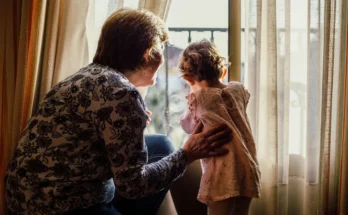I’m Alicia, and I thought I was doing the right thing. When my mother-in-law, Betsy, invited my six-year-old son Timmy to her annual two-week “grandkids-only” vacation, I hesitated—but ultimately agreed. Betsy’s estate in White Springs was legendary: tennis courts, entertainers, a pool the size of a lake. Timmy had watched his older cousins go every year, returning with stories that made Disneyland sound dull. He was ecstatic. “Mom, am I really old enough now?” he asked, eyes wide with hope. I kissed his forehead and said yes. I had no idea I was sending him into a nightmare.
The drive to White Springs was filled with Timmy’s excited chatter. He imagined swimming races, treasure hunts, and sleeping next to his cousin Milo. Betsy greeted us with her usual icy charm—smiles that didn’t reach her eyes. “He’ll be fine,” she said, waving us off. I wanted to believe her. That night, I couldn’t sleep. Something felt off, but I brushed it aside. The next morning, my phone rang. Timmy’s voice was trembling. “Mommy, please come get me. I don’t like it here.” My heart dropped. I asked what happened, but he just sobbed. I was already grabbing my keys.
When I arrived, the estate looked like a postcard—manicured lawns, kids playing by the pool. But Timmy wasn’t among them. I found him curled up in a guest room, clutching his stuffed bear. His eyes were red and swollen. “They made fun of me,” he whispered. “I didn’t want to play their games.” Apparently, the older cousins had mocked him for being “babyish,” and Betsy had scolded him for crying. “Big boys don’t whine,” she’d snapped. My son had felt alone, humiliated, and abandoned. I held him tight, furious at myself for trusting her.
I confronted Betsy, who dismissed Timmy’s distress as “adjustment pains.” She insisted he needed “toughening up” and accused me of coddling him. “He’ll never grow if you keep rescuing him,” she said. I saw through her façade—this wasn’t about love or tradition. It was control. Her version of family bonding was emotional boot camp. I told her we were leaving. She scoffed, but I didn’t care. Timmy needed safety, not strength training. I realized then that Betsy’s estate wasn’t a haven—it was a gilded cage. And I had handed her the key.
On the drive home, Timmy was quiet. Then he whispered, “I thought Grandma would be nice.” I told him not all grown-ups act with kindness, even if they’re family. “You did nothing wrong,” I said. “You were brave to call me.” He nodded, gripping my hand. That moment rewrote everything I believed about family. Blood doesn’t guarantee compassion. And tradition means nothing if it breaks a child’s spirit. I promised Timmy he’d never be forced into anything again. His voice mattered. His feelings mattered. And I would never ignore them again.
Back home, Dave was livid. He’d always defended his mother, but seeing Timmy’s tear-streaked face shattered that loyalty. “She crossed a line,” he said. We agreed to set boundaries. No more unsupervised visits. No more blind trust. Betsy’s annual vacation would continue—but without our son. We told her firmly: Timmy’s well-being comes first. She was furious, but we didn’t budge. Protecting our child wasn’t negotiable. That summer became a turning point—not just for Timmy, but for our entire family dynamic.
Weeks later, Timmy began smiling again. We took him to a local water park, where he raced down slides and laughed freely. “This is way better than Grandma’s,” he said. I watched him reclaim joy, one splash at a time. Healing wasn’t instant, but it was real. I learned that parenting isn’t about pleasing relatives—it’s about protecting your child’s heart. Timmy’s tears taught me that even glittering traditions can hide emotional harm. And sometimes, the bravest thing a parent can do is say no.
Now, every summer, we create our own adventures. Backyard camping, pancake breakfasts, silly scavenger hunts. Timmy thrives in spaces filled with love, not judgment. Betsy still sends invitations, but we politely decline. I’ve stopped feeling guilty. My son’s happiness is my compass. That phone call changed everything. It reminded me that listening to your child isn’t weakness—it’s wisdom. And when a six-year-old begs to come home, you don’t hesitate. You go. You rescue. You rewrite the story.


